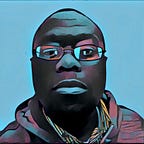Why We’re Building Tech Media Products for the Pan-African Community
Try this exercise; Google “Africa” and search News. Review the headlines. How many pages do you have to go before you find a story that is not related to war, conflict, corruption, safari, poverty porn, sports, or some disease epidemic or starvation crisis?
Now search in Images, and beyond the maps, note how long it takes you to see an image of people. How many photos of animals in the jungle do you have to scroll by before you see a person? And when you finally do, who are they? Are they all in huts? Are they dressed well, or are they starving or in pain and dressed in tribal attire?
If you keep scrolling some of you might come across a man in a suit, or a woman with a beautiful head wrap at a podium or in front of a step-and-repeat. Congrats, they are likely images accompanying a corruption story or humanitarian effort lead by Westerners trying to “save Africans.”
How could you possibly know about the progress of billionaires like Aliko Dangote, the fashion acumen of Oswald Boteng, or the infectiousness of Afrobeats? You wouldn’t know that Africans are the most educated immigrant demographic in the United States. You might barely be familiar with Chimamanda Ngozi Adichie, who is at last expanding the Western bookshelves of African novels beyond Things Fall Apart. But I bet you cannot properly pronounce her name.
Now imagine that you are African and this is the narrow range of news that is readily available and mass distributed. This is the narrative the world knows about you. This is what you most know about yourself, because the content written by your people about your people is not easy to find. Great articles, videos, memes and gifs are dispersed around the cyber world, living on cool blogs you have not heard about, yet. And established publications that consistently cover your community are largely focused on reporting about your rich and famous.
If you are African, Caribbean or Black, you know this reality. You know how irritated and angry you get with being represented in the worst way. You also know how excited and emotionally nourished you are when those rare stories or editorials come by that accurately capture something closer to your community’s perspective. You’re encouraged when you discover content that highlights something dope or interesting that someone that looks like you and came from a similar background is doing.
Why isn’t it as easy to enjoy a wide range of news and stories as it appears for everyone else?
This is not just an issue of self-esteem. These perceptions have real-world consequences. According to a research report from the African Business Center at Ernst & Young, if an investor has no investment in Africa, it is ranked the least desirable place to invest. If an investor has any investment in Africa, even a small portion of their portfolio, they rank it as the first or second most desirable place to invest. The lack of investment is due to a lack of knowledge.
They call it the “African Perception Gap.” Even seasoned investors, with access to money and resources—and who are likely well-educated and well-traveled—can still only conjure up thoughts much like the results of those Google searches.
All of these issues highlight why ZNews Africa exists. We create and curate cool stories about the Pan-African community in our mobile app, newsletter and website products.
The origin of ZNews began with my cofounder, Alpha Bah. Alpha was born and raised in Guinea, West Africa, but when he came to the U.S. he found it very difficult to find general news about his home country. So he applied his technology knowledge and experience as a mobile software developer to build a mobile app that made it easier for him to find stories by aggregating and organizing news by country and topic, in English and French, the two languages he speaks.
The idea was attractive to other Africans in America, like myself. I’m a first generation American, born and raised in New York by two Ghanaian immigrants. Alpha and my other African and Black friends in New York, Washington, D.C., London, Toronto, San Francisco, Los Angeles and Paris—all from Nigeria, Kenya, Senegal, South Africa, Côte d’Ivoire and more—wanted this product and service. That demand inspired us to commit to building media and tech products to serve the Pan-African community.
ZNews Africa was born in November 2014, and now has 80,000 mobile app users globally. We have a 30,000 follower social media audience. ZNewsletter, our year-old weekly email of curated stories, reaches over 4,000 readers across the world. The newsletter is read not only by everyday people, but also by folks at top financial firms, communications agencies and NGO’s, including, Citigroup, Bank of America, The World Bank, The United Nations and the U.S. Department of State.
We have done this as a two-person team with full time jobs, bootstrapping. We are not rich and barely middle class. The most support we have received is from our selection into Facebook, Google and Microsoft’s accelerator programs, which came with great benefits, but no money.
We are still determined to work toward closing that perception gap. We will find a way to monetize. We will find a way to highlight and tell great stories. And we will, most importantly, best serve the Pan-African community, in a way that it deserves, as it has never been served before. That is why I am at the Tow-Knight Center for Entrepreneurial Journalism. I want to become a better product manager and content developer and build something that has no blueprint, yet.
Join us. Be a part of impacting over 1 billion people. Subscribe to ZNewsletter, download our app and expand your perception. We’re also happy to hear feedback, ideas, critiques and all at Stories@znewsafrica.com. Or find me on Twitter and Instagram as @michaeljrain.
